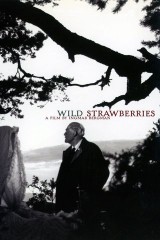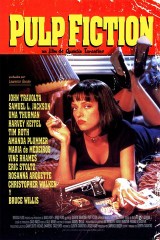Michael Apted’s Five Favorite Films
The director of The World Is Not Enough, the Up documentary series, and this week's Unlocked on the universal language of laughter, time travel, and female-centered stories.

(Photo by First Run Features courtesy Everett Collection)
Few directors will ever be able to say that they’ve helmed both an influential documentary franchise and a James Bond film, but Michael Apted certainly can. He took the reins for the Pierce Brosnan 007 film The World Is Not Enough, and his acclaimed Up documentary series, which began in 1964 with a profile of several seven-year-olds and has checked in with the same “kids” every seven years since then, remains a singular cinematic achievement. Since making his debut over half a century ago, Apted has worked steadily in both television and film, as a documentarian and narrative filmmaker, establishing himself as one of the most prolific, most versatile directors of his era.
Apted is also known for working with celebrated actresses in acclaimed films about famous women, like Sigourney Weaver as Dian Fossey in Gorillas in the Mist and Sissy Spacek as Loretta Lynn in Coal Miner’s Daughter — both earned multiple Oscar nominations, and Spacek actually took home the Best Actress trophy. This week, Apted returns to the big screen with Unlocked, a tense spy thriller starring Noomi Rapace, Michael Douglas, Orlando Bloom, and Toni Collette. He spoke with RT about his Five Favorite Films, explained what he finds so fascinating about women’s stories, and talked about how his documentary background informs even his most outrageous films.
Ryan Fujitani for Rotten Tomatoes: A lot of your films — and perhaps some of the ones you’re best known for — feature female protagonists, and Unlocked also falls into that category. Can you talk a little bit about why it’s important to you to tell these female-centered stories?
Michael Apted: I’ve always felt that women’s lives were intrinsically more dramatic than men’s, largely because they have the issue of having children, and so at some point in their life, they have to make a decision not to have children, or to have children. And just to compare two of my women’s films, one was Sissy [Spacek] in Coal Miner’s Daughter, when she burdened with having to bring up four children and have a career. And with Gorillas in the Mist, when Dian Fossey decided to abandon all kinds of social life. Although she liked men, and she liked clothes, and all those things, she decided to go live in these godawful mountains for 15, 16 years.
I find that, at the heart of women’s stories, for me, there’s much more drama, much more emotion in it, because of the kind of expectations they have of life, how they’re expected maybe to have children, get married, blah, blah, blah. Even in something like the film I did with [John] Belushi, Continental Divide, which was directly on that motive, that there was this woman who’d gone on up and sit on the top of the mountain to follow birds around — eagles — and there was this kind of grubby newspaperman coming in and wondering what the hell was going on. Although it was a comedy, nonetheless underlying it was the fact that this woman has given up the expectations of her life to do this rather odd job, to try and see how many the eagles were and all this sort of stuff.
And Nell, too. I just found women’s stories more emotional, and that’s what I have to look for in any film I do, is the emotion, whatever it is. It doesn’t have to be between a man and a woman. It can be with an older man, or a younger boy, or whatever, but as long as some emotional center to it, then I can come up with it. And I find that that’s why I’m attracted to stories with women.
Only this one was slightly different, because this one was in place, and Noomi [Rapace] was in place and all that when I came in to do it, but nonetheless… I feel like every film I’ve done, there always seems to be women in it, which is just an instinctive choice on my part.
RT: Going back to Unlocked, in the end, it’s a propulsive spy thriller, and it’s set in a sort of heightened reality, but it sort of sits in this interesting middle ground between truly fantastical stuff — like your James Bond film or the Chronicles of Narnia film that you did — and movies that are strictly based in reality, like the documentaries you make. Does something like Unlocked hit sort of a sweet spot for you as a filmmaker who has made films in both realms?
Apted: It’s dealing with a horrendous issue. It’s slightly over-the-top and slightly unbelievable, but nonetheless it does ask questions about where we’re at or what we are, and it brings intimacy to the kind of dangerous life we’re all living, every time we go down the Underground, every time we get on a bus, or into the car. Without being too squeamish about it and all that, I found that that story took me into something that maybe people don’t think about quite enough. Not that we should all go around terrified of opening the door.
But I thought, again, it was the kind of human way of expressing what is very troubling — not that it should ruin our lives, but we should not be unaware of it. So, yeah, it does… I mean, there’s the stuff that I do, I suppose, that is in the middle ground, if you like. That’s an astute observation on your part. But I think everything I do is basically a documentary. I mean, even things as outrageous as Bond and that.
I remember with the Bond film, it was about getting gas out of the water, out of the Caspian, so I made them all go down there and have a look at it and see what was down there. We got some astonishing images. I shot some of them, in the design of the sets and all that kind stuff. It was this city in the middle of the Caspian sea. It was unbelievable. And had I not sort of said, “Well, look, I’ve got to find out how this really happens…” I find my documentary instinct always, at some point, comes to bear, and if it doesn’t, usually I don’t do a very good job. I like having that as a kind of back stop, if you know what I mean.
I was very upset when I did Gorky Park, because they wouldn’t let us in. We did go in to start, but they threw us out when they realized what we were doing, that we were adapting this book. And they said, “There is no crime in Russia. Get out.” And they threw us out in a rather unceremonious, rather scary way, because this was pre-Gorbachev.
But again, I felt… “God, I didn’t know what they had for breakfast,” and things like that, and how they live and all that. “How am I going to do this if I don’t know this stuff?” You know, I do my best with it, but I always love to have a kind of documentary or reality base to what I do.
Unlocked opens in limited release this Friday, September 1.








